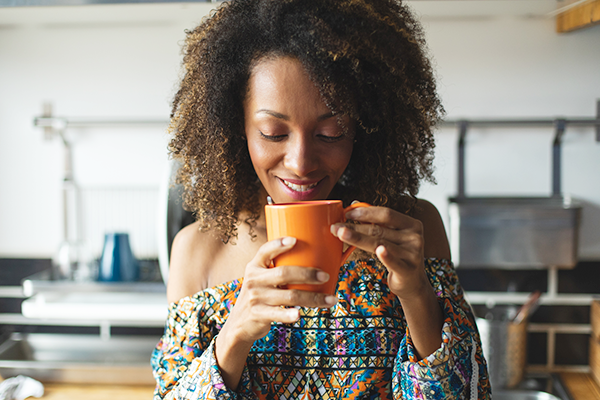In Shakespeare’s day, it was generally believed that the body contained four basic “humors,” including blood and bile. Today, many of us would add the coffee and tea that seem to flow through our veins to that list. Many of us can’t (or won’t) start our day without one of these. Both beers provide energy, and studies continue to claim their health benefits.
But in the battle between tea and coffee, which one is “better” than the other? You might be surprised by the answer.
Caffeine in tea vs caffeine in coffee
Coffee has about twice as much caffeine as black tea, which has more caffeine than green tea. Here’s how the caffeine content of different types of coffee and tea stacks up:
The U.S. Food and Drug Administration states that consuming 400 milligrams of caffeine per day generally does not cause dangerous negative effects. That’s the equivalent of four cups of coffee, eight cups of black tea, or nearly 14 cups of green tea! When comparing green tea and coffee, consider how many more cups of green tea you could drink.
Which one has more benefits?
Let’s compare the three most relevant benefits of tea and coffee to caffeinated beverages.
1. Energy

Both coffee and tea can provide energy. Since coffee generally contains more caffeine than tea, it “may have a more pronounced effect on alertness,” says registered dietitian and certified personal trainer Connor McClink, RD, CPT, MS.
“Caffeine works by blocking adenosine receptors in the brain, thereby reducing the attachment of adenosine molecules, thereby reducing fatigue,” he explains.
Once ingested, caffeine reaches peak blood levels within 30 minutes to an hour, and it takes your body about five hours to eliminate half of the caffeine. (Keep this in mind when timing your last cup of coffee or tea.)
Paradoxically, while tea contains less caffeine to help wake you up, it also provides an amino acid that can help you relax.
“Tea contains L-theanine, which works synergistically with caffeine to promote relaxation and have a more subtle and sustained effect on alertness,” says McCrink.
2. Antioxidants
Coffee and tea are tied when it comes to antioxidant support. According to registered dietitian Cristina Svec, MA, RDN, CLE, both are “rich in phytochemicals” (phytochemicals) such as polyphenols and flavonoids.
“They act as antioxidants,” she explains, so they provide a variety of health benefits.
3. Lose weight
Drinking coffee, tea, or a caffeinated supplement before exercise may help give you more energy to keep you active for longer. Exercise and proper diet are both necessary to achieve and maintain weight loss and muscle definition.
Coffee and tea contain zero calories themselves, so they’re great no matter what your goals are. But beware: the “coffee” or “tea” drink you order may be loaded with sugar and milk (and calories). So if you’re drinking something other than regular coffee and tea, check the ingredients list!
So which one is healthier?

The tea vs. coffee war will end in a draw! Both drinks have benefits when consumed in moderation, as long as they don’t disrupt your sleep or add excessive sugary calories.
“You’ll find that different people have different opinions on the subject, mainly based on their tea and coffee preferences,” Svec said. “As a nutritionist and coffee drinker, I try to be unbiased. Coffee and tea are healthy as long as they don’t contain sugar and/or cream.”
Coffee is definitely more acidic than tea, so consider this if you have a sensitive stomach. But most importantly, tea vs. coffee is not an either/or choice!
